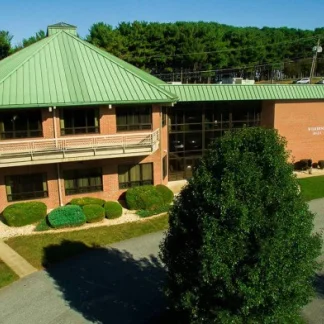Teen Challenge Training Center
Rehrersburg, Pennsylvania, 33 Teen Challenge Road, 19550
Available Programs
- Adult program
- Program for men
- Total beds : 160
- Young adult program
Insurance and Financial
- Private insurance
- Self-pay options
- Medicaid
- Financial aid
- Monthly : $12,000
- Sliding scale payment assistance
About this Facility
Teen Challenge Training Center is a drug and alcohol addiction treatment center offering inpatient and outpatient programs for adults and adolescents in Rehrersburg, Pennsylvania. They provide mental health resources, psychiatric services, training, and aftercare.
As a nonprofit organization, Teen Challenge Training Center has been providing addiction care since 1962. Their faith based program provides a full continuum of addiction treatment for men, women, and adolescents. includes the following services: mental health assessments, dual diagnosis treatment, intensive outpatient programming, inpatient treatment, medically assisted detox, crisis management, counseling, behavior modification, family discharge planning, medication management, and supportive medical care.
The detox services at Teen Challenge Training Center assist individuals with severe addiction comfortably detoxify and remove the substances from their bodies while prioritizing safety and comfort. Patients are medically supervised and may receive medication to support the process and are referred to aftercare support, such as residential treatment, following completion of treatment.
Offering multiple levels of counseling, the Teen Challenge program provides a faith based approach to unlearning self destructive behaviors and recommitting to a relationship with a higher power. Other activities include scheduled recreational activities, family programming, counseling, aftercare planning, chapel time, outdoor activities, and spiritual guidance and mentorship.
Teen Challenge Training Center residential programs offer structured drug and alcohol addiction treatment for short and long-term. The short term program lasts for 30 days and is an intensive program that helps to uncover the underlying causes of addiction. The long term program offers support and guidance over a longer period of time and more comprehensive activities, such as ongoing counseling, spiritual guidance, ministry opportunities, individual and group sessions, and family support.
Before completing treatment, each individual meets with their care team and family to determine a comprehensive aftercare and relapse prevention plan. That may include attending outpatient support groups, and regular progress meetings with their treatment counselors and/or pastor.
Teen Challenge Training Center offers a variety of payment options, including self pay, and private insurance.
Contact us for more information: (717) 933-4181

Contact Teen Challenge Training Center
Connect with Teen Challenge Training Center by calling their admissions team directly.
(717) 933-4181 Website Get Directions